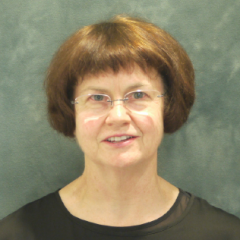Evaluating the Implementation of a Kidney Supportive Care Program into a Hospital and Health Service
Frail, vulnerable patients facing end of kidney life require access to a pathway of individualised care and treatment tailored to their needs. Terminal cancer patients, who have a similar symptom burden, have seamless access to specialist palliative and supportive care; however in many renal services, this is largely non-existent or, at best, occurs on an ad-hoc basis. This project is conducting a prospective, mixed-methods evaluation of a novel, transdisciplinary model of clinical care - the Kidney Supportive Care program (KSCp) at Metro North Hospital and Health Service (MNHHS). The KSCp works with specific groups of patients with advanced chronic kidney disease and is centred on shared decision-making with patients and carers, exploration of patients’ values and wishes, and provision of supportive care appropriate to individual symptom burden.
The project is funded by an Australian Centre of Health Service Innovation (AusHSI) Implementation Grant and the CKD.CRE.
View the KSCp presentation recently showcased at our 2017 NHMRC CKD.CRE Forum here.
Study Aims
To evaluate the implementation of the KSCp into MNHHS by:
- Describing the profile of patients who attend the KSCp and KSCp operational activities
- Assessing patient- and carer reported outcomes
- Describing the facilitators and barriers around the KSCp
- Performing a health economic assessment of the KSCp
- Exploring the personal, social, experiential and contextual factors of KSCp patients, carers and healthcare stakeholders.
Methods
This project is informed by the Consolidated Framework for Implementation Research (CFIR). A range of data is collected to capture demographic and clinical patient characteristics, operational activities (accessibility, referrals, stock and flow, advance care plans), patient- and carer-reported outcome measures (symptom burden, quality of life, satisfaction with the KSCp), resource utilisation (hospitalisations, OPD episodes, disease burden) and data on decision-making around dialysis options. In addition, data is collected from KSCp stakeholders (patients, carers, clinical and executive staff) via semi-structured interviews.
Conclusions
This project will provide robust evidence of the individual-, service- and community-level benefits of a person-centred program and whether the KSCp is matching individual patient needs. It will also provide evidence regarding sustainability and translation into other health services.
Project Enquiries
Dr Louise Purtell – louise.purtell@qut.edu.au




